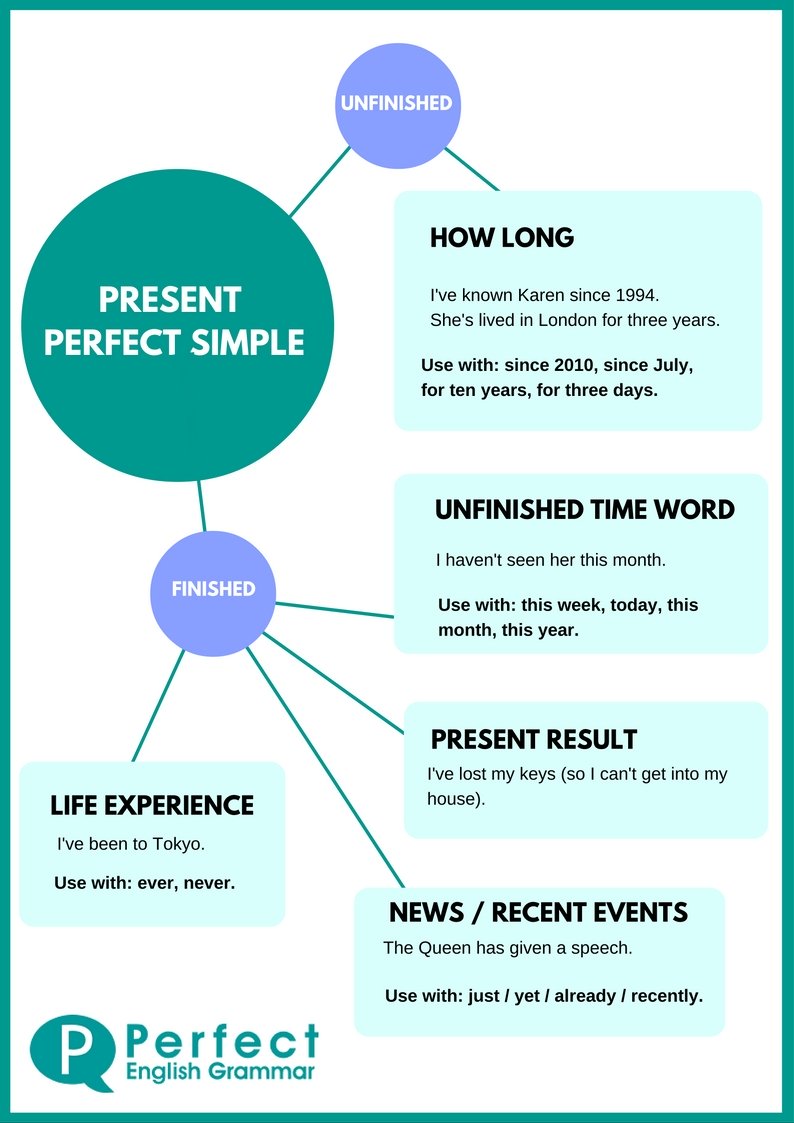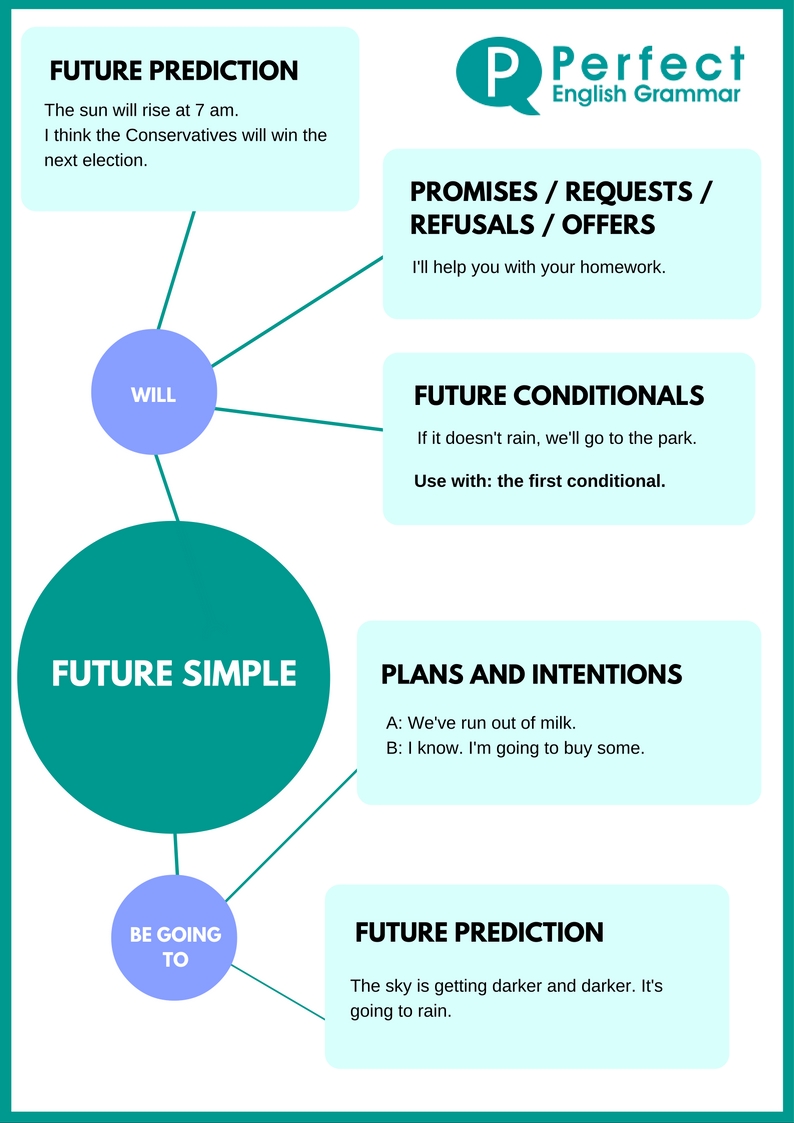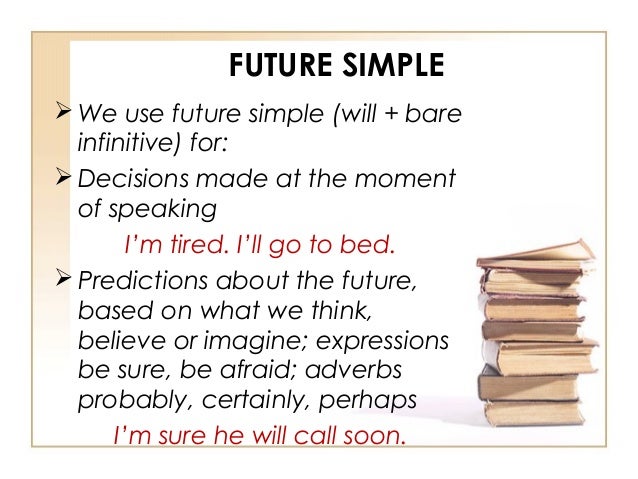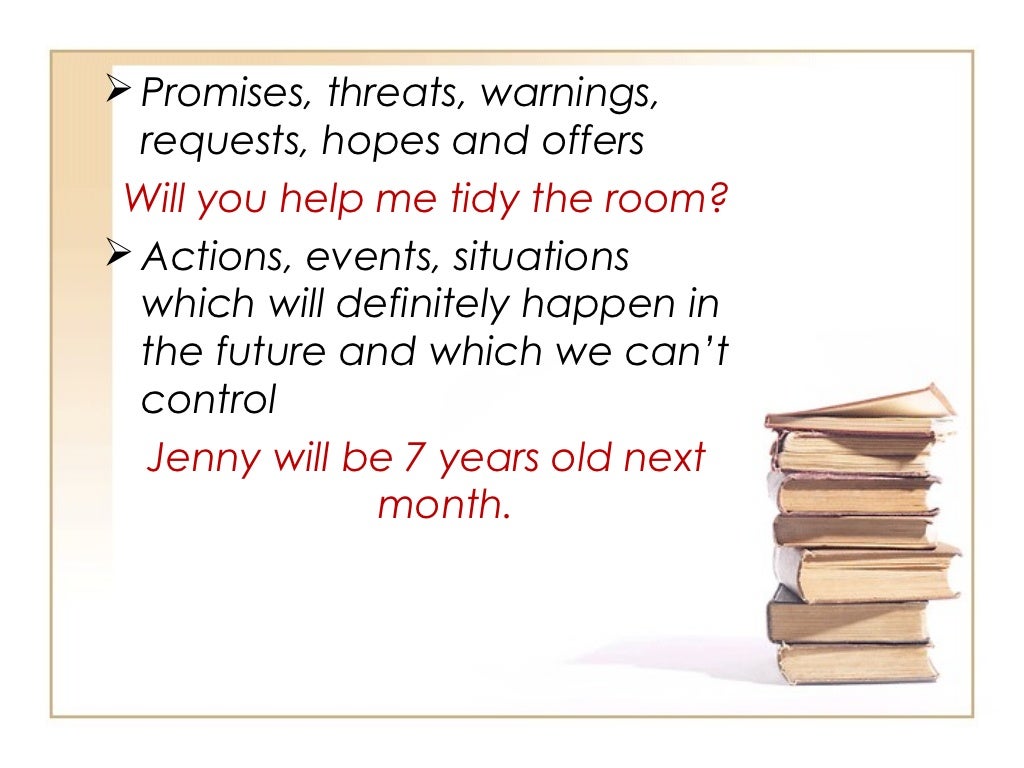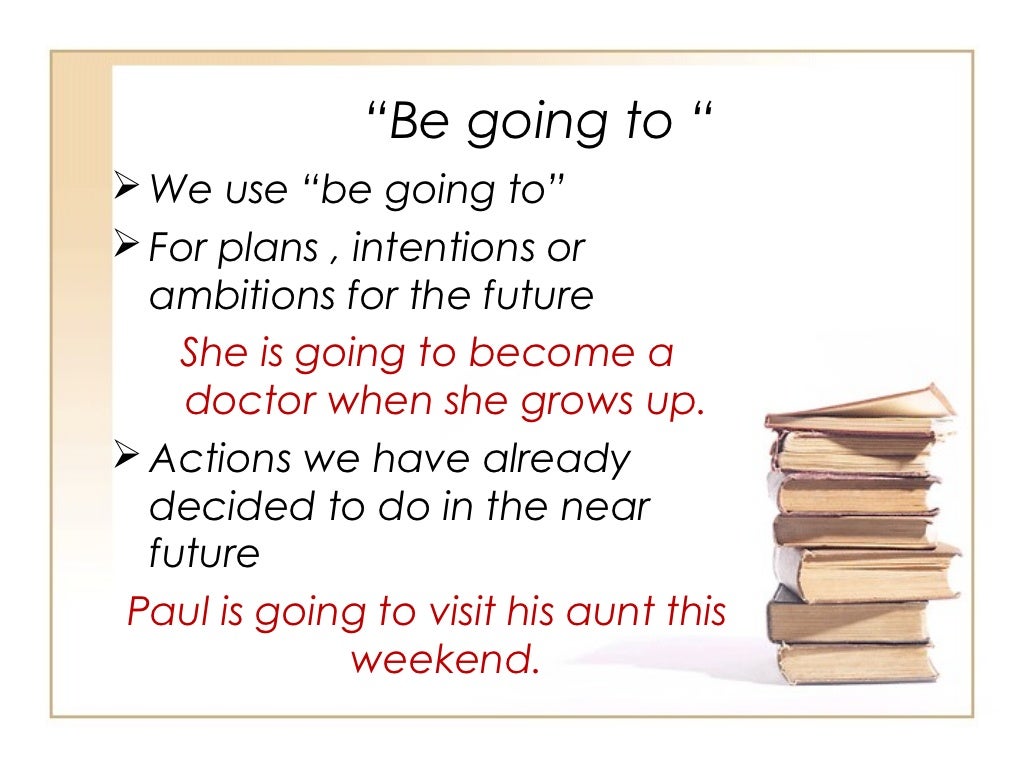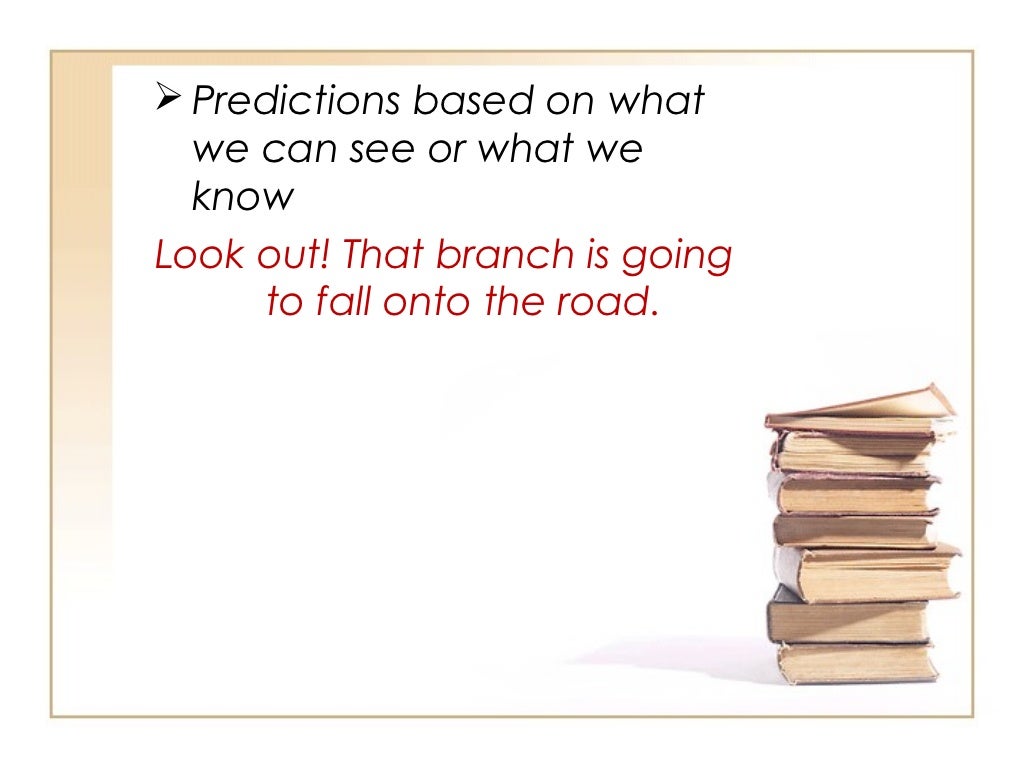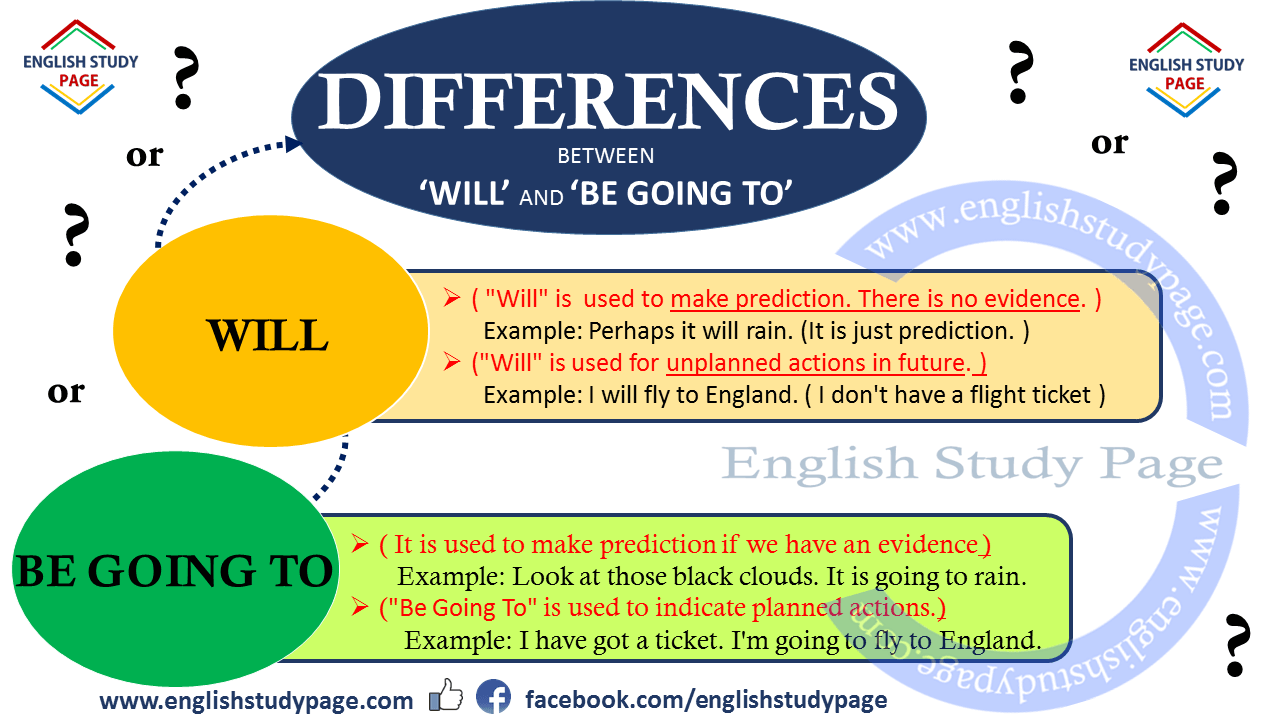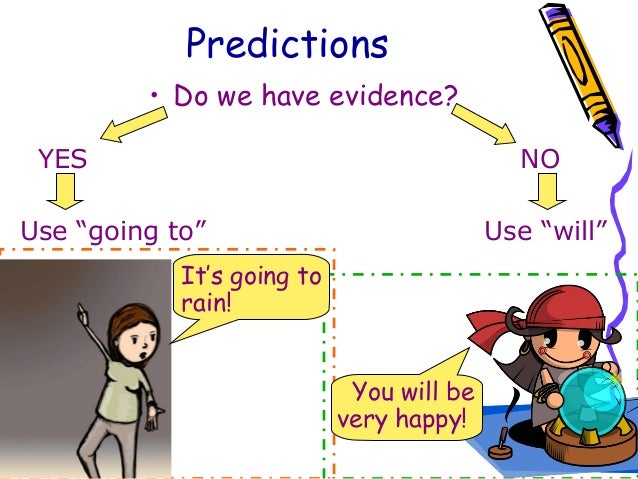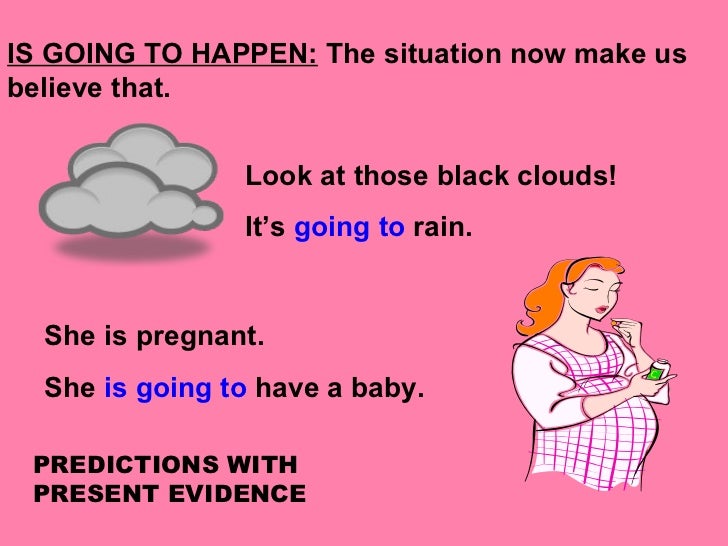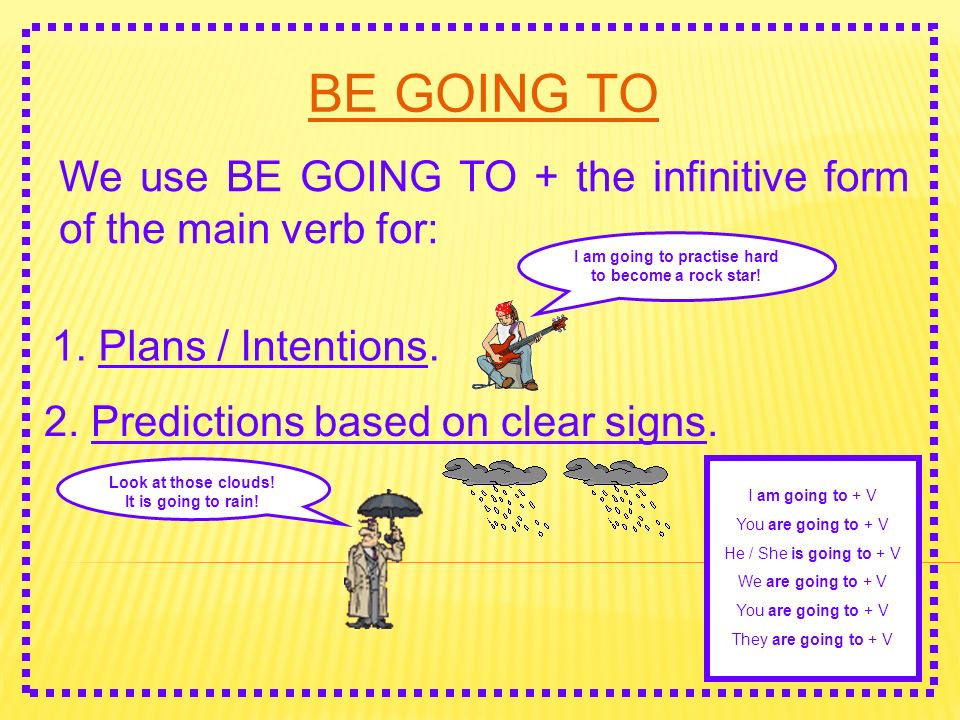Simple Future has two different forms in English:
"will" and "be
going to" Although these two forms refer to a specific time in the future, they often express two different meanings.
Will future expresses a spontaneous decision, an assumption with regard
to the future or an action in the future that cannot be influenced.
Form of will
|
positive
|
negative
|
question
|
No differences
|
I will speak.
|
I will not speak.
|
Will I speak?
|
Use of will
§
a spontaneous decision
Example: Wait, I will help you.
§
an opinion, hope,
uncertainty or assumption regarding the future
Example: He will probably come back tomorrow.
§
a promise
Example: I will not watch TV tonight.
§
an action in the
future that cannot be influenced
Example: It will rain tomorrow.
§
conditional clauses type I
Example: If I arrive late, I will call you.
Signal Words
§
in a year, next …, tomorrow
§ Supposition: I think, probably, perhaps
Exercises
Tests






